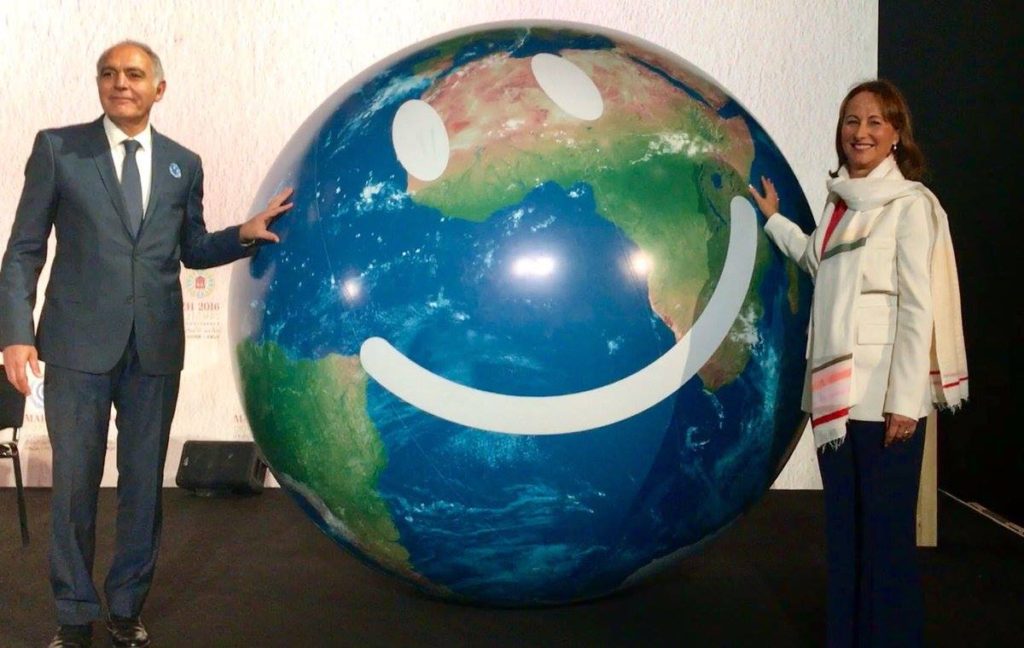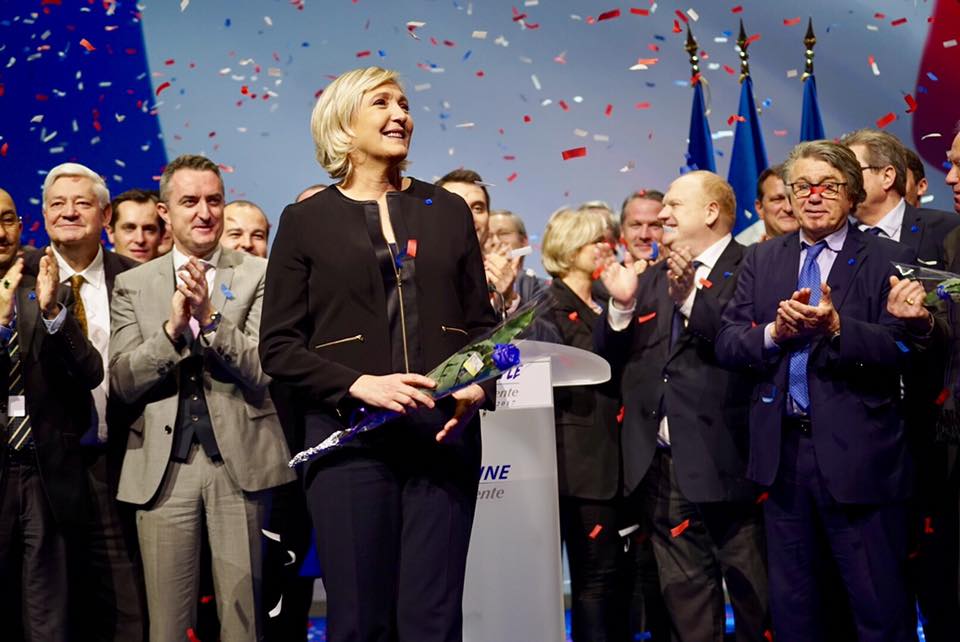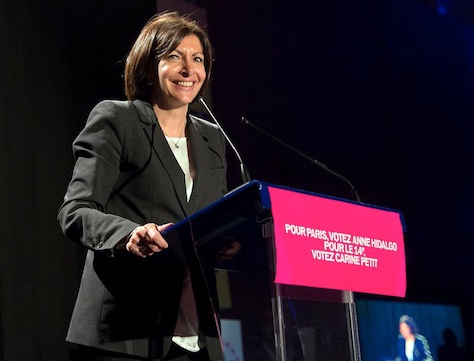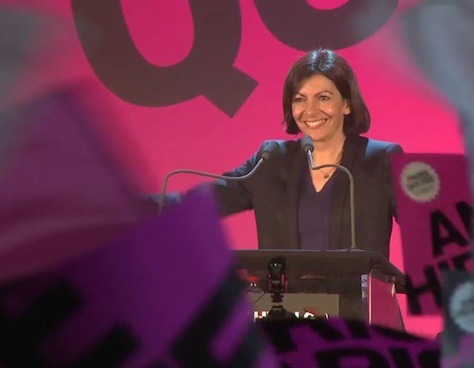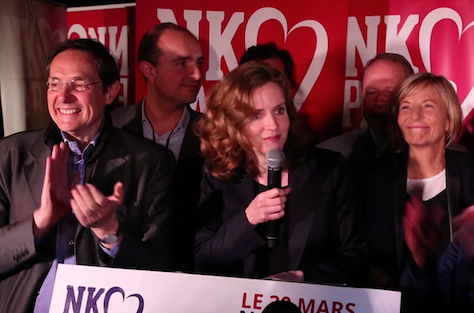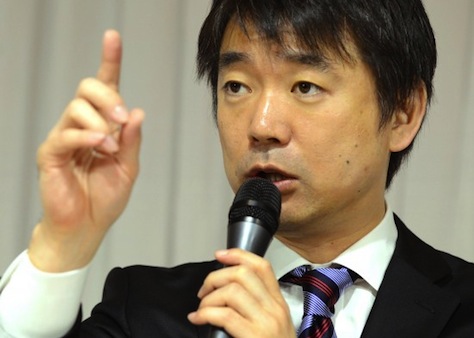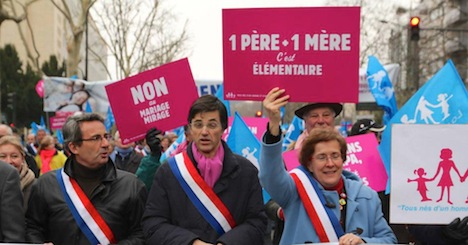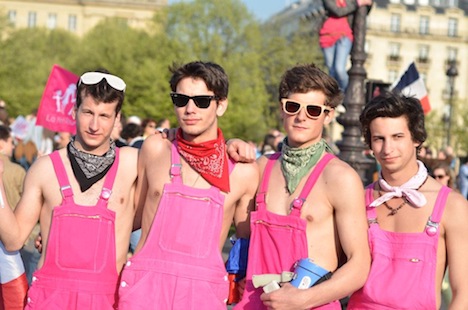
With less than two weeks to go until the first round of the French presidential election, Jean-Luc Mélenchon is surging in the polls.![]()
From a distant fifth place a month ago, Mélenchon’s strong debate performances and his appeal from outside the traditional political mainstream have catapulted him well beyond former education minister Benoît Hamon, the social democratic candidate of the Parti socialiste (PS, Socialist Party) — and in some polls, even leading former prime minister François Fillon, the center-right and scandal-dogged candidate of Les Républicains.
* * * * *
RELATED: How Le Pen might win a runoff against Macron
* * * * *
The latest IFOP poll gives Mélenchon 17%, just behind Fillon (19%), though still some trailing poll leaders Marine Le Pen (24.5%) and Emmanuel Macron (23.5%) — Hamon, who once led Mélenchon, now claims just 9.5%. Earlier this year, before Hamon’s nomination, I wrote about the nightmare scenario (for centrists and liberals) of a Le Pen-Mélenchon runoff.
But you should be skeptical about the Mélenchon surge, which might not be as large as polls currently show. Even so, Mélenchon will struggle to grow his support sufficiently to win the presidency.
Rise of the anti-elite left

Mélenchon is the candidate of the far-left Front de gauche (Left Front), an alliance of communists and other hard-left figures. Though Hamon won the Socialist Party nomination in January on a radically leftist agenda (e.g., a business tax on robots, a 32-hour workweek, a higher minimum wage and new spending on social welfare), Mélenchon would go farther. Charismatic and acerbic in equal measure, Mélenchon also favors the 32-hour workweek, greater social spending (in the form of a €100 billion stimulus) and a higher minimum wage (€1,300 per month). But he would also levy a 100% tax rate on anyone making over €33,000 a month. He would also dismantle France’s nuclear power program, which supplies over 76% of France’s power needs (more than for any other country worldwide). While Le Pen wants to leave the eurozone and hold a referendum on ‘Frexit,’ Mélenchon wants to leave the European Union and NATO entirely, slams German chancellor Angela Merkel on the campaign trail and vows that he’s the only candidate ‘for peace.’
Mélenchon may sound like the ‘French Bernie Sanders,’ but his policy positions makes Sanders seem like a centrist in comparison.
French politics has seen this show before. Mélenchon, who ran for president in 2012, also saw a mid-April polling surge in the last election. One mid-April 2012 IFOP poll gave him 14.5% in that race, but he ultimately finished far behind in fourth place with 11%, under-performing every significant French poll in the days leading to the vote.
Five years later, anti-establishment sentiment is certainly much higher. There’s no doubt that Mélenchon is as anti-elite as it comes, even more so than the hard-right, anti-immigrant Le Pen, who at least finds common cause in the Catholic Church and other institutions that she believes support her view of traditional French values. Though Macron remains the frontunner to win a runoff against Le Pen on May 7, Le Pen still leads most polls to win the first round of the election on April 23. It’s been taken for granted for so long that Le Pen would win the first-round vote, but it’s still a landmark achievement for her and the Front national. The two candidates of the traditional parties are now polling less than one-third of the vote in an election season that eliminated both former president François Sarkozy and Bordeaux mayor and former prime minister and foreign minister Alain Juppé in the center-right presidential primaries, as well as once-popular prime minister Manuel Valls in the center-left primaries. It also forced an unpopular incumbent François Hollande to skip a reelection bid altogether.
Mélenchon continues to splinter the left, not unite it
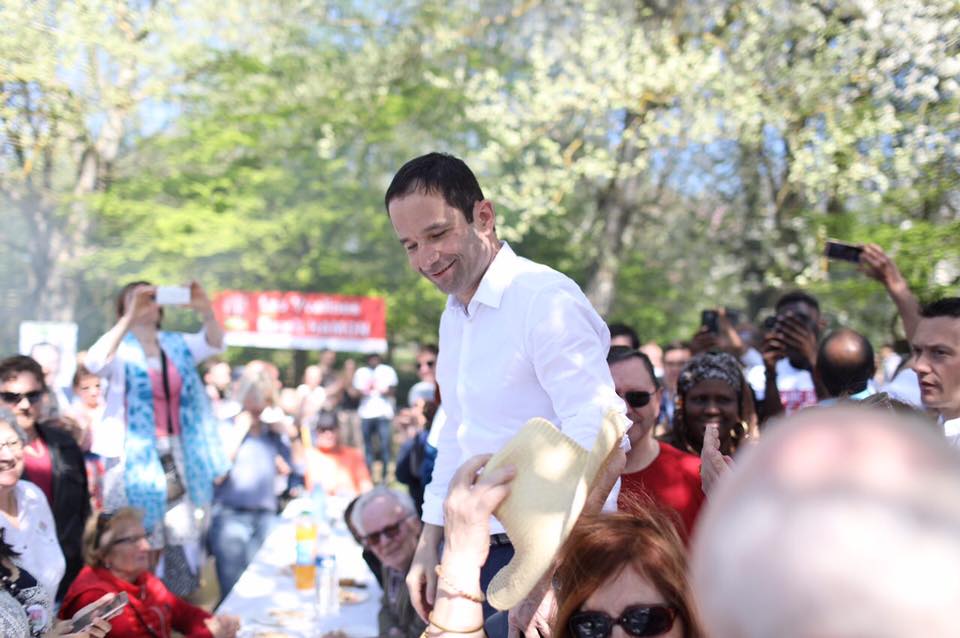
Over the weekend, Hamon indicated that if Mélenchon does make the May runoff, his supporters should support Mélenchon. That’s the closest sign of any unity between the two campaigns. Just a few weeks ago, prominent Hamon supporters — including leftist economist Thomas Piketty — were hoping Mélenchon might drop out of the race in favor of a united candidacy around Hamon. Yannick Jadot, who had planned to run as the candidate of the Europe Écologie Les Verts (Europe Economy / Greens), dropped out in late February in deference to Hamon.
Now, many leftists are hoping Hamon will drop out. They add up the total support for Hamon and Mélenchon in polls, and believe that together, they would be a shoe-in for the runoff. But the reality is far more complicated.
That’s unlikely.
Hamon, ironically, is more maverick than the ‘independent’ Macron (a Hollande protégé), and his nomination made the chances of a coalition with Mélenchon far more likely than had Valls won the Socialist nomination.
But Hamon was always swimming upstream as the official nominee of the Socialist Party. After five years of Hollande, the Socialist brand is toxic; after the perceived decades-long failures of Hollande, Sarkozy and their predecessors (on everything from employment to wage growth to immigration), the establishment brand is even more toxic. Moreover, many centrists within the Socialist Party responded to Hamon’s nomination by distancing themselves from a nominee who (1) seemed like a sure loser and (2) is far too leftist for their tastes, and many of those Socialist centrists now support Macron, formally or informally. Hamon has been poorly served by the Socialist Party since January, and there is a chance — however slim — that he might drop out of the race in favor of Mélenchon. (It would be too far late, legally, for the Socialists to nominate a new candidate).
The Hamon-Mélenchon talks failed not only because the two candidates are so far apart on policy (such as EU and NATO positions), but from the fact that they come from very, very different traditions. Think about the difference between, say, longtime French communist leader Robert Hue and former Socialist president François Mitterrand. Even if Hamon dropped out (very unlikely) and endorsed Mélenchon, the Socialist Party would never endorse him — in part, because Macron is already the unofficial Socialist candidate. Moreover, the Socialists also have a tough parliamentary election in June to worry about.
Mélenchon would hardly welcome formal Socialist backing. Just as Macron perceived (and as Hamon is learning), the party’s imprint is akin to a poisoned chalice. Nothing Mélenchon could do or say would more taint him as a ‘sellout’ to his supporters than to accept Socialist endorsement.
Indeed, the best gift Hamon might be able to provide Mélenchon is to drop out and force the Socialists to endorse Macron instead, who already has his share of ‘Socialist’ problems. Though he’s leading a new movement called ‘En marche,’ Macron’s experience in French politics comes from a Socialist background. A graduate of the elite École nationale d’administration and a former investment banker, Macron owes his political career to Hollande. He served as a presidential deputy chief of staff before serving as Hollande’s economy minister from 2014 to 2016. Like it or not, Macron is the status quo candidate in the race, for all his populist bluster about change. Former Paris mayor Bertrand Delanoë now backs Macron, as does Valls. Unofficially, so does Ségolène Royal and many others, including perhaps Hollande himself.
The rupture of the French left into a centrist Macron faction, a progressive Hamon faction and a hard-left Mélenchon faction isn’t likely to change after April 23. Even if the personalities leading those factions change, the divides might widen as the focus shifts to parliamentary elections. If Macron loses the presidency to Le Pen, moreover, the left’s fragmentation could magnify Le Pen’s ability to co-opt economic nationalism and reframe French politics on a nationalist/globalist line instead of a traditional left/right line. Unfortunately for the Socialist Party, the stakes transcend just one election cycle, and the party’s hegemony, at least throughout much of the Fifth Republic, may be finished.
The problem for Mélenchon’s growth prospects

Even while Mélenchon is shaking up the race, there’s a big difference between ‘shaking up’ and winning.
The question is where Mélenchon can go from here. A once-possible April 20 debate looks like it will no longer take place, denying Mélenchon one last chance to shine (ironically because he refused to join a debate just three days before the first-round vote). He led a well-attended rally in Marseilles over the weekend, but rallies are one thing — converting rallies to votes is another. Unlike Fillon, Hamon and even Le Pen, who have traditional party structures to help turn out the vote, and unlike Le Pen and even Macron, who has cultivated a large organization since last summer, Mélenchon is at a ground-game disadvantage. That’s perhaps one reason his 2012 showing was such a disappointment.
On the left, it’s hard to see where Mélenchon will pick up more voters. Hamon’s supporters must realize he’s a lost cause. But while Mélenchon’s polls began to rise after the first presidential debate on March 20, those Hamon voters are still not switching to Mélenchon, even though he has surged to a 2-to-1 advantage against Hamon in some polls. Maybe he could pick up voters from Macron, but it’s doubtful that the most pro-European centrist in the race would hemorrhage too many votes to an ardent eurosceptic communist. Even as the traditional parties weaken, a dwindling PS base still exists to support the Socialist nominee. Note the baseline support (at least 16% to 20%) that Fillon is still winning from center-right voters, even though police have essentially indicted him for paying public funds to his wife and children for fake jobs.
More fertile ground for Mélenchon might come from Le Pen’s supporters (one reason why he may have held his weekend rally in Marseilles, where Le Pen support runs strong). Like Mélenchon, Le Pen calls for radical change, is skeptical of Brussels and EU officials, and embraces the same economic protectionism as Mélenchon’s old-school leftism. So if he makes a breakthrough later this month, it could be at Le Pen’s expense, reclaiming votes in places like France’s de-industrialized northeast, where Le Pen won over disenchanted — and formerly Socialist — voters.
But another lesson from 2012 should cast doubt on that thesis. After the last presidential race, both Le Pen and Mélenchon ran for a legislative assembly seat in northeastern Hénin-Beaumont, an old coal-mining region. In the first round of that election, Le Pen won 42.4%, far ahead of second-placed Socialist Philippe Kemel (23.5%). Again, Mélenchon disappointed with just 21.5% of the vote. In the runoff (Mélenchon withdrew and endorsed Kemel), Le Pen only narrowly lost by a margin of 50.1% to 49.9%. Nevertheless, the lesson from that parliamentary race, at least five years ago, is Le Pen’s brand of hard-right protectionism was far more compelling than Mélenchon’s 21st century communism.
Le Pen’s support in the 2017 election, however, has universally been stronger than in 2012. So while there’s definitely a path for Mélenchon into the May runoff, it will be an incredibly difficult task.

